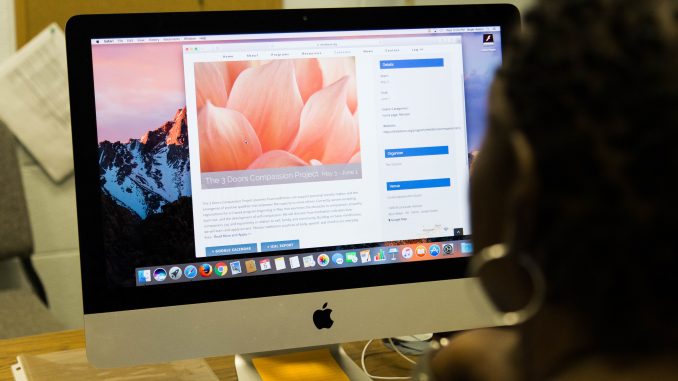
When Juan Zambonini studied in Argentina, many of his textbooks were written by Temple’s music therapy professors. He dreamed of going to Temple.
“It’s an internationally known program,” said Zambonini, a third-year music therapy graduate student. “It’s something I’ve always wanted to be a part of.”
Today, he supervises a fieldwork project for the Boyer College of Music and Dance that offers music therapy to facilities like Edison Fareira High School in North Philadelphia. Darlene Brooks, the director of the music therapy program, sets up fieldwork opportunities for music therapy students, including Zambonini.
Music therapy is the use of music, like singing or playing instruments, to improve social and motor skills for people with developmental disabilities. Brooks said it requires a close relationship between a therapist and client.
“I see our students as ambassadors who educate about music therapy and will eventually blossom into professionals who work to change people’s lives,” Brooks said.
During Fall 2016, Brooks introduced Zambonini and junior music therapy majors Robert DiBartolomeo and Shannan Morgan to administrators at Edison Fareira High School so they could work with a class of students with developmental disabilities.
Each day, the music therapy students lead the class in a good morning song, improvise on instruments and end class with a thank you and goodbye song.
“I worked with a similar population of teens in Argentina,” Zambonini said. “It is incredible to watch them grow and to be more comfortable with themselves.”
When Zambonini arrived at the high school with DiBartolomeo and Morgan, many of the students they worked with were frustrated by day-to-day challenges, like communicating with others or developing motor skills. But Zambonini said the group is eager to get to the music room every day, where they make progress with every session.
“I can’t tell you how many high schools have called requesting music therapy services after the success we are having at Edison,” said Brooks about the students’ calmness.
Brooks will also introduce two new classes to the music therapy program: one in Fall 2017 and one in Spring 2018.
She said these classes emerged out of a nine-month sabbatical she took to practice mindfulness and meditation. The first course will give students the opportunity to get in touch with themselves through practices like meditation, she said. The second will focus on which mindfulness techniques are appropriate to use with different clients.
“In the demanding environment of a university, a lot is going on and many of us become stressed,” Brooks said. “Mindfulness practices have helped me see, understand and respond to that stress in a better way.”
She thinks her students can benefit from similar practices because music therapists are often affected by the pain and struggles their clients face because they develop such close relationships.
“I have no idea how this is going to work,” Brooks said. “It’s new for us, but I think it will benefit many of our students.”
“Our program was founded with a purpose to train students to make a difference,” Brooks added. “And I see it continuing as a force that drives the evolution of music therapy.”
Patrick Bilow can be reached at patrick.bilow@temple.edu.


Be the first to comment